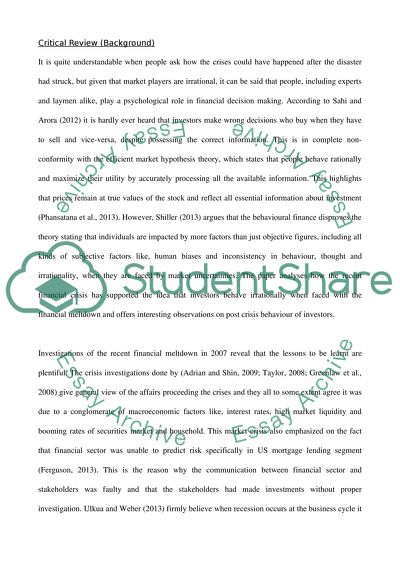Cite this document
(“The effect of the recent financial crises on the UK investors psyche Literature review”, n.d.)
The effect of the recent financial crises on the UK investors psyche Literature review. Retrieved from https://studentshare.org/finance-accounting/1492144-the-effect-of-the-recent-financial-crises-on-the
The effect of the recent financial crises on the UK investors psyche Literature review. Retrieved from https://studentshare.org/finance-accounting/1492144-the-effect-of-the-recent-financial-crises-on-the
(The Effect of the Recent Financial Crises on the UK Investors Psyche Literature Review)
The Effect of the Recent Financial Crises on the UK Investors Psyche Literature Review. https://studentshare.org/finance-accounting/1492144-the-effect-of-the-recent-financial-crises-on-the.
The Effect of the Recent Financial Crises on the UK Investors Psyche Literature Review. https://studentshare.org/finance-accounting/1492144-the-effect-of-the-recent-financial-crises-on-the.
“The Effect of the Recent Financial Crises on the UK Investors Psyche Literature Review”, n.d. https://studentshare.org/finance-accounting/1492144-the-effect-of-the-recent-financial-crises-on-the.


